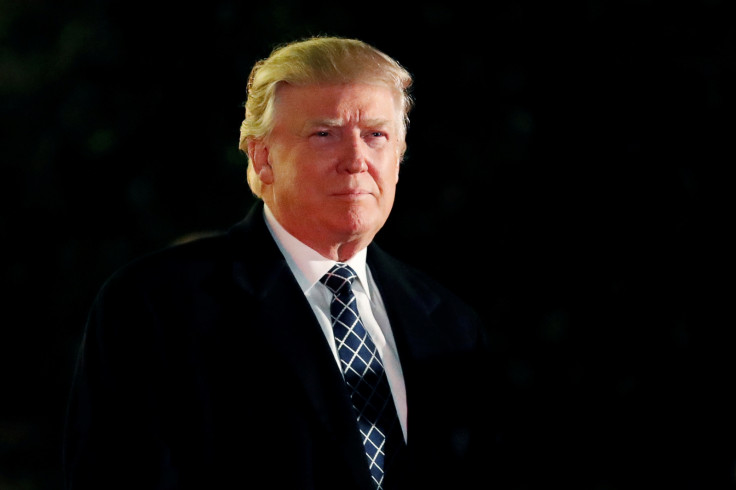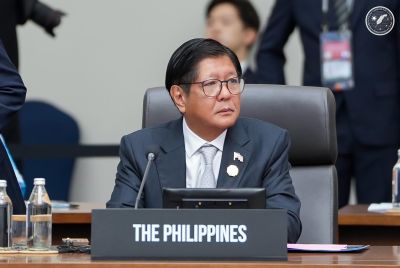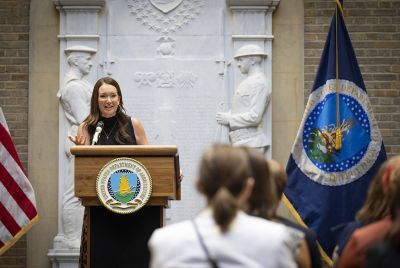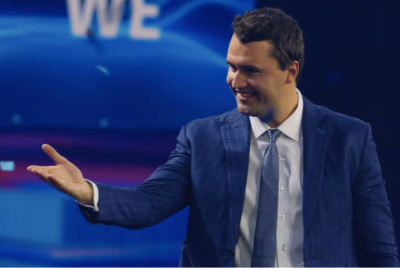Trump gets only one presidential intelligence briefing a week, says report
Democrats and security experts have expressed concerns over Trump's attitude to intelligence briefings.

President-elect Donald Trump is reportedly receiving an average of one presidential intelligence briefing per week, believed to be comparatively fewer than most of his recent predecessors.
Although it is not compulsory for presidential candidates to receive the President's Daily Brief (PDB), which is one of the most highly classified and closely guarded government intelligence reports, previous presidents-elect have reportedly welcomed the opportunity to be apprised about major intelligence and security issues.
Since reports about Trump's refusal to accept intelligence briefings, security experts and democrats have expressed concerns and criticisms over the president-elect's attitude toward intelligence briefings. It is still unclear why Trump has declined to receive intelligence briefings more frequently.
Officials in the intelligence community have confirmed that Trump has turned down several intelligence briefings offered to him, a senate aide told CBS News. However, according to an unnamed official in Trump's transition team, Trump has asked for at least one briefing from intelligence agencies and perhaps even more, on specific issues, Reuters reported. In comparison, Vice President-elect Mike Pence has been receiving his very own PDB at least six days a week.
The unnamed official refrained from commenting on the frequency of Trump's intelligence briefings, but added that the president-elect has been getting national security briefings as well as "routine" PDBs.
Although the contents and issues discussed so far in Trump's briefings were not disclosed by the source, it was confirmed that among the subjects that "interested" Trump, Russia and Iran have yet to make the cut.
Trump recently refuted the US government intelligence's conclusion that Russian state-backed hackers perpetrated the high-profile cyberattacks against the Democratic National Committee (DNC) and other political parties. Trump instead claimed that the intelligence community's analysis was possibly politically motivated.
Meanwhile, Despite's Trump's dismissal of intelligence reports on the DNC hack, both Republican and Democrat lawmakers are slated to investigate Russian interference in the 2016 presidential elections, the Wall Street Journal reported.
Intelligence experts and Democrats concerned
Former CIA director Leon Panneta said that "one of the concerns I have right now is that this president is not getting his intelligence briefings. He's taken a few of them, but he's not getting them every day," The Hill quoted him as saying.
"Every president I know, and I worked under nine presidents, every one has taken their intelligence daily brief because that sets the agenda for what you have to focus on as president of the United States."
One of the top Democrats on the House Intelligence Committee, Adam Schiff, said, "It is deeply disturbing that the president-elect has time for rallies but not for regular intelligence briefings."
Senate Democrats Ben Cardin of Maryland and Dianne Feinstein said in an op-ed published by USA Today, "Indeed, we find it particularly troubling that President-elect Trump has mostly declined to take the daily intelligence briefing. Presidents and presidents-elect going back decades have begun their day this way — understanding national security threats and opportunities, asking probing questions, and making tough decisions.
"Donald Trump has undertaken an awesome task and responsibility, and he must now lead by example. We therefore owe it to him, and to the nation, to demand that when it comes to America's national security imperatives, he take his new job more seriously."
© Copyright IBTimes 2025. All rights reserved.




















